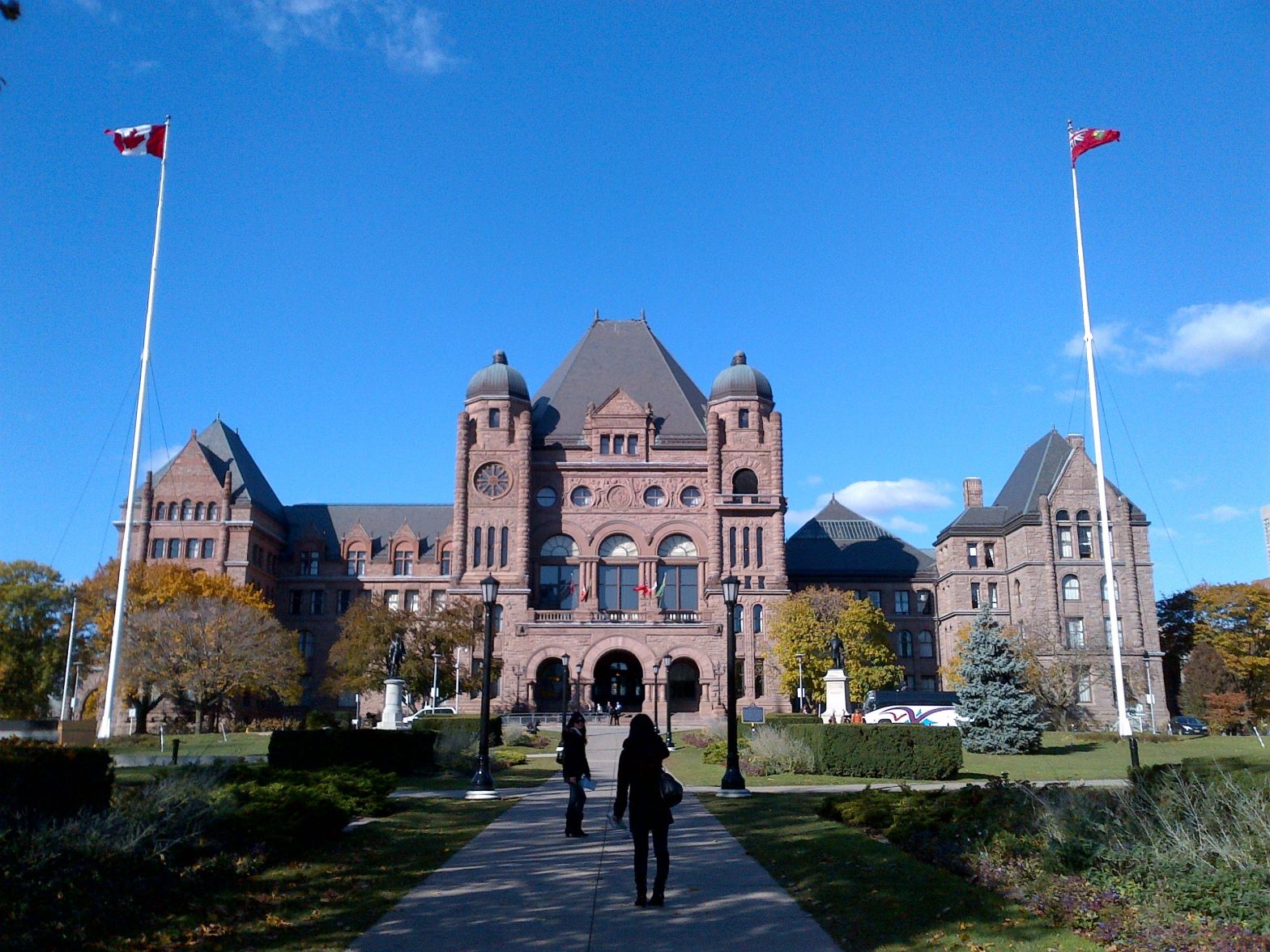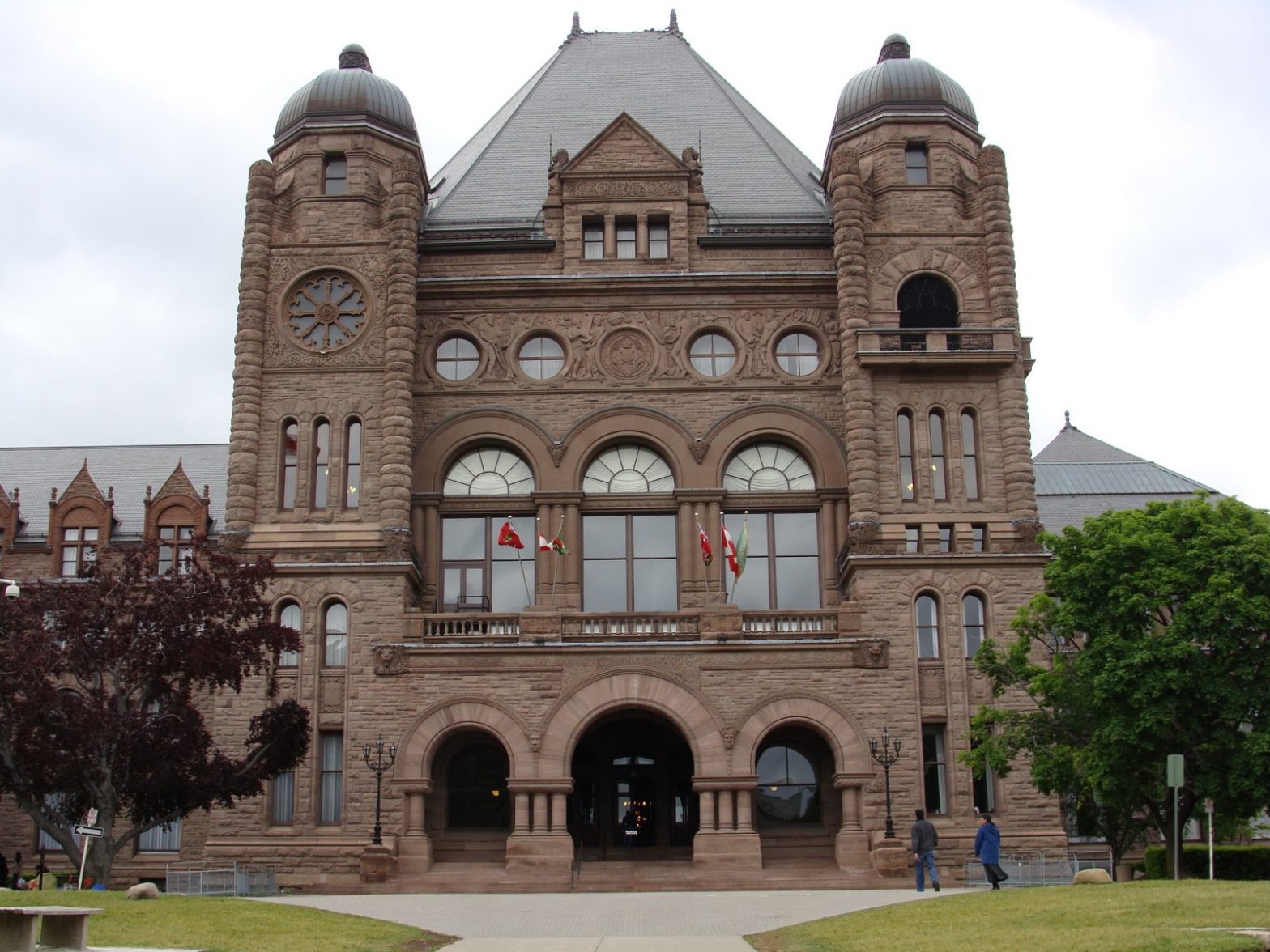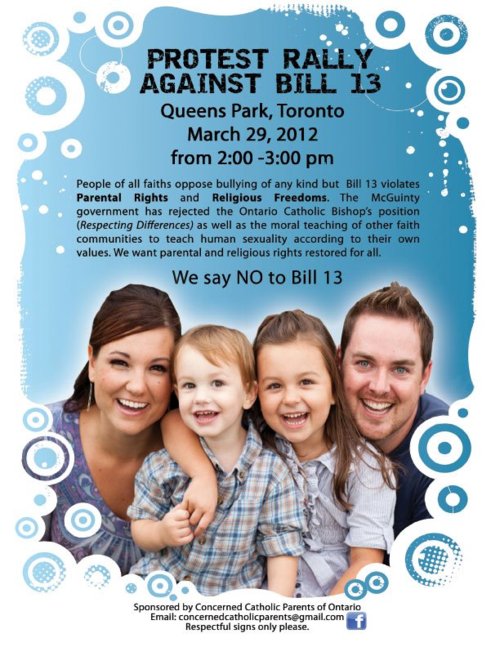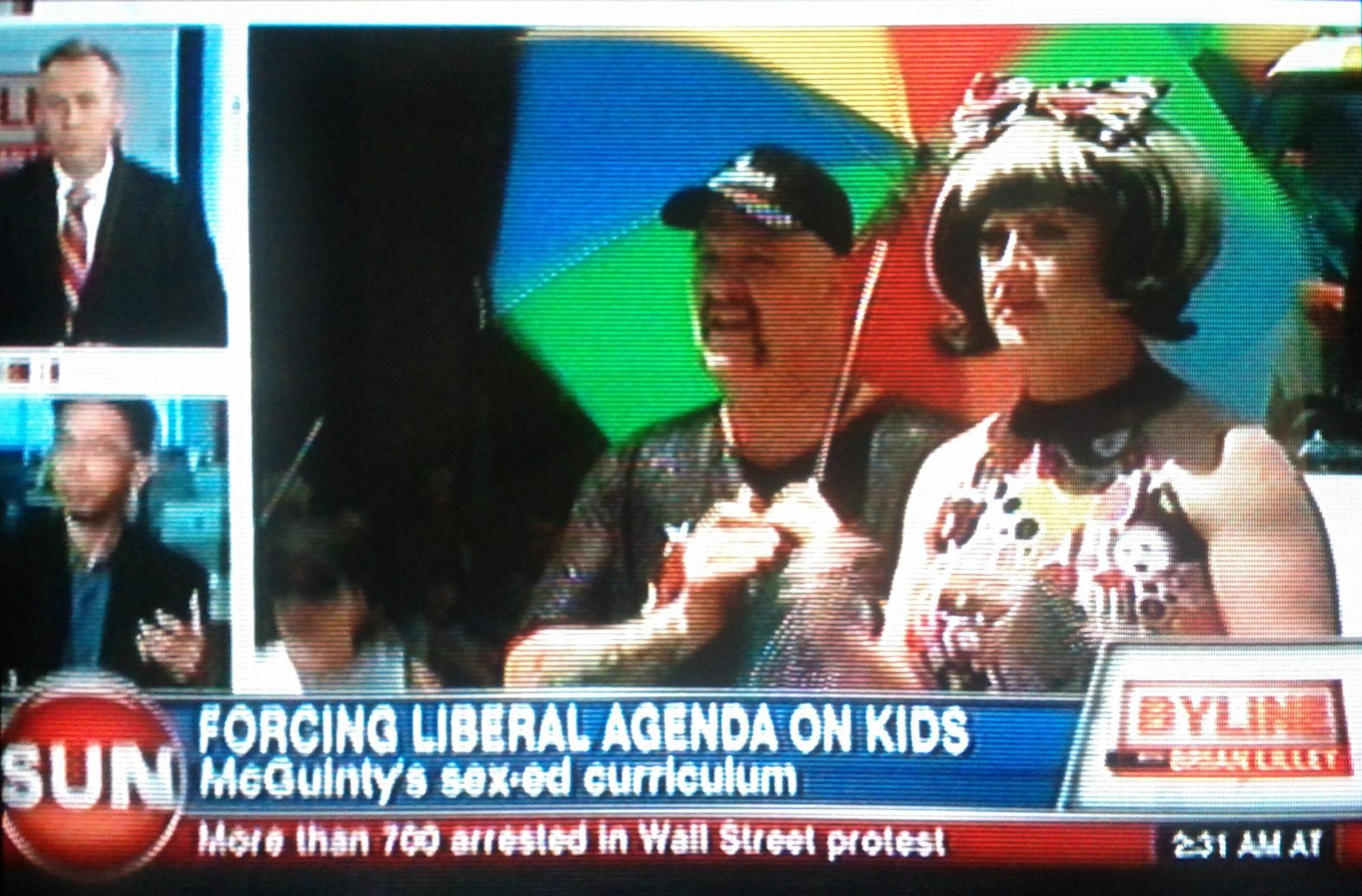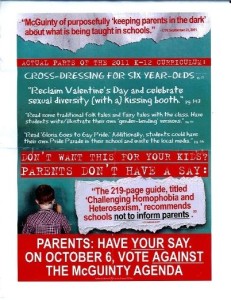This was another day of debate for Ontario’s Bill 13, also known as the Accepting Schools Act. You can read my coverage for the previous debate here. You can read a transcript of today’s events here.
The NDP through MPP Cheri DiNovo affirmed their support for the legislation, while re-iterating where they saw avenues for improvement. She also talked extensively about Gay-Straight Alliances. She quoted a student who felt rejected by his school administration, which had banned students from forming a GSA. She also went on to talk about statistics of suicide among LGBT youth, and the need for the support:
We want to support these students, and part of supporting these students is to support them in supporting themselves. When they say—and they don’t all say, but when they do say—that they want a gay-straight alliance in their schools, we need to be behind them.
DiNovo then spoke of the demonstrable benefits of having such support in schools:
I want to just share some quotes, and these quotes are from various groups. First of all, let’s look at Egale. Egale Canada says, “GSAs … demonstrably improve the lives of LGBTQ youth, increasing their safety and improving their self-esteem.”
By simply existing, GSAs present “students with the idea that LGBTQ identities have a place in the school, and society at large. Directly engaging LGBTQ youth and their allies within school, as well as those who are ambivalent regarding LGBTQ themes, is an excellent means towards addressing school climate, isolation, promoting social connectedness.” They cite a study in California that found gay-straight alliance presence and participation in high school to be highly correlated with decreased depression, substance abuse and lifetime suicide attempts among LGBTQ young adults.
The Progressive Conservatives through MPP John O’Toole voiced their objection to Bill 13. O’Toole suggested that passing this law would be tantamount to bullying:
I believe this document from the Ontario Catholic School Trustees’ Association, Respecting Difference, summarizes particularly how I feel about the issue. I believe that the secular society forcing views on non-secular society is in fact bullying.
Perpetrators are being framed with the same language used to describe the victims, in an attempt to provide a sense that both positions are of equal merit. And yet, when you look at who is exercising control over the other, such illusions are quickly dispelled.
The students are seeking to form a support group. They are not preventing other students from forming a support group. They are not preventing the school’s administrators from creating a support group. They are not making bigoted decisions that negatively impact others. On the contrary, they are the recipient of such prejudice. Contrary to the MPP’s assertions, the inability for a perpetrator to infringe on the well-being of others does not make them victims.
I find it telling that the MPP quoted the Respecting Differences document, which forbids students from even speaking openly about matters of gender identity.
As Liberal MPP Glenn Murray noted:
The reason the GSAs, and not organizations for disabilities or black kids or aboriginal kids, are at the centre of this is because of our social discomfort with sexual orientation. That’s what the Hotwire—Charles McVety and a few thousand extremists are going to be out on the front lawn. They’re not here talking about kids with disabilities. They have no problem with stopping bullying against young folks who are unfortunately overweight or kids who are a little ungainly or awkward or a bit nerdy or whatever the thing is that brings on that horrible bullying.
Then taking aim at the comments made by O’Toole, Murray said:
You know, it isn’t bullying. There’s no one here that’s suggesting that we shouldn’t teach a Catholic perspective in our schools. Let me read Charles McVety, who is a person who, if you had to find the philosophical polar opposite to my world—this is what he recently said in a news article editorial he wrote. He said that Catholic teaching is defined in the document, by referring to the document Pastoral Guidelines to Assist Students of Same Sex Orientation in the 2006 CCCB statement, which the member from Durham mentioned before: “Basing itself on sacred Scripture, which presents homosexual acts as acts of grave depravity” and a tradition that declared—he’s quoting from the bishop’s direction—“homosexual acts are intrinsically disordered.”
I have to say to the bishops: “You’re not allowed to do that anymore.” I’m not allowed to say to the Catholics—nor should I—or to other Christians or Muslims or Jews, that because of your faith you’re intrinsically disordered. I would never say to you that anything that goes on in your family with the person you love—can you imagine me describing a husband-and-wife relationship as inherently depraved? Can you imagine how it feels to gay and lesbian families and to our children in schools when people like Charles McVety say we’re unfit to be parents? How much do you love your children? How would you feel, as an Ontarian or as a Canadian? You feel a little less Canadian. I feel a little less welcome in my own country every time someone like that is endorsed.
He concluded by stating he hoped both the Liberal Bill 13 and the PC Bill 14 passed. There was more commentary by other MPPs, and declaration that this debate would be continued another time.
Then came the second reading for Bill 14. NDP MPP Rosario Marchese expressed her party’s support for the legislation, while PC MPP Lisa MacLeod told the audience where she thought it was better than Bill 13. More accountability and better at remediation, she said. Another Liberal, Liz Sandals, said she would support Bill 14. Other MPPs spoke up to support the private member’s bill. There was a motion to carry. With that, the PC bill passed second reading.
It seems that Glenn Murray’s observations were spot on. Because Bill 14 did not explicitly cover LGBT students, it was devoid of the opposition that has plagued the Liberal bill. Its second reading debate lasted an hour, and then it passed to the next phase for legislation. Meanwhile, Bill 13 has been dragged in second reading debates for days, with no clear end in sight.
I’m glad Bill 14 passed this stage. I’ll be more happy when Bill 13 does too.
